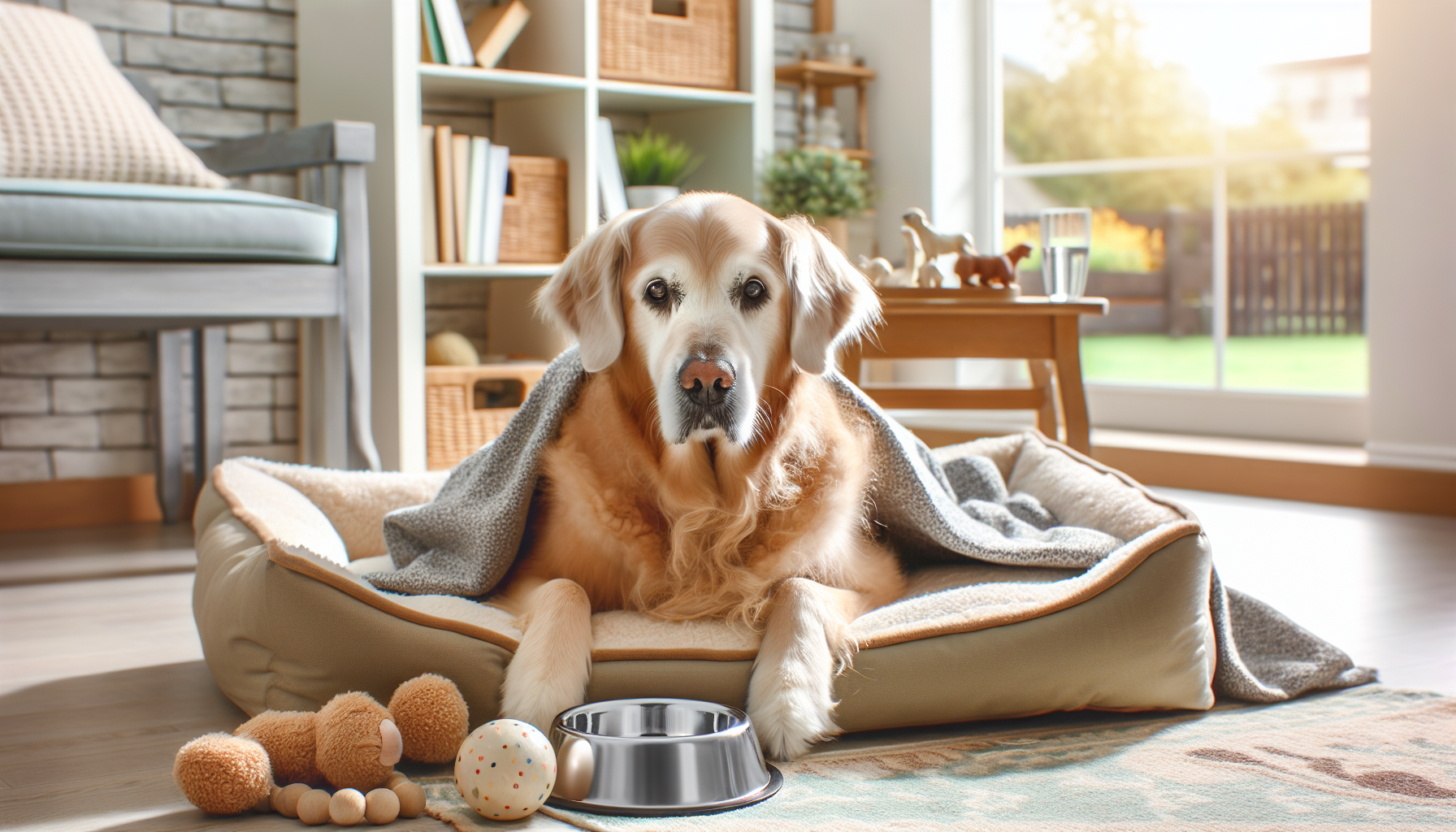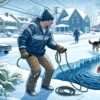- Empty cart.
- Continue Shopping
Essential Tips for Caring for Your Aging Dog Effectively – aging dog care

Aging dog care –
Essential Tips for Caring for Your Aging Dog Effectively
As your beloved canine companion grows older, it’s crucial to adjust their care routine to ensure they enjoy their golden years in comfort and health. Aging dogs, much like elderly humans, require extra attention and care to maintain their well-being. This guide provides essential tips to help you care for your aging dog effectively and addresses the key areas that need attention as they age.
Recognizing the Signs of Aging in Dogs
Before you can provide the best care for your aging pet, it’s important to know when your dog is entering their senior years. Many factors, such as breed, size, and genetics, affect aging. Here are some common signs of aging to watch for:
- Decreased energy levels and increased sleep
- Stiffness, especially after resting
- Graying around the muzzle and coat changes
- Changes in weight, appetite, or thirst
- Vision or hearing changes
- Increased anxiety or confusion
- Behavioral changes, such as irritability

Adjusting Diet for Aging Dog
Proper nutrition is fundamental for an aging dog health. Their dietary needs change, and it’s important to tailor their diet appropriately:
- High-Quality Protein: Ensure their diet includes good quality, easily digestible protein to maintain muscle mass.
- Low Calories: Senior dogs are less active and require fewer calories to avoid weight gain.
- Fiber-Rich Foods: A diet with an appropriate amount of fiber aids their digestive system.
- Omega-3 Fatty Acids: To support joint health and reduce inflammation.
- Consider Supplements: Talk with your vet about possible supplements for joint support, like glucosamine and chondroitin.
Exercise and Mobility
While older dogs might slow down, exercise remains an important part of their routine:
- Provide consistent yet gentle exercise like short walks to maintain muscle strength and mental stimulation without overexertion.
- Modify activities to accommodate any physical limitations. Avoid strenuous activities and adjust walking pace and distance if necessary.
- Consider adding low-impact exercises like swimming which is easier on the joints.
- Ensure they have a comfortable place to rest with access to supportive bedding to aid tired or achy joints.
- Use ramps or stairs to help them reach favorite spots without too much effort.
Regular Veterinary Check-ups
Routine vet visits become even more important as your dog ages:
- Take your senior dog for bi-annual check-ups to catch any health concerns early.
- Keep their vaccinations up-to-date, as older dogs might have a weakened immune system.
- Regularly monitor their weight and adjust their diet and exercise based on your vet’s advice.
- Consider blood work and other tests to check for common age-related issues like kidney disease, arthritis, or diabetes.
Oral and Dental Care
Oral health is often overlooked but is incredibly important, especially for older dogs:
- Schedule regular dental cleanings with your vet to prevent dental disease.
- Use age-appropriate dental chews or toys to prevent plaque buildup.
- Inspect their mouth regularly for signs of oral health issues such as bad breath, discolored teeth, or difficulty eating.
Mental Stimulation and Comfort
Maintaining your dog’s mental health is just as important as their physical health:
- Keep their mind active with interactive toys, puzzles, and gentle enrichment activities.
- Offer consistent routines and environments to minimize stress or anxiety, which older dogs can be prone to.
- Provide a safe, quiet space where they can retreat when they want to rest.
Providing Love and Comfort
Finally, never underestimate the power of affection:
- Spend quality time and offer gentle affection to reassure them that they are loved and secure.
- Observe their comfort levels and respect their need for independence at times.
- Monitor behavior closely and adapt to any changes to ensure you’re providing maximum comfort.
Conclusion
By tailoring your care to meet the evolving needs of your aging dog, you can help them live a comfortable, fulfilling life well into their senior years. The changes you make to their diet, exercise, veterinary care, and overall routine will greatly contribute to their happiness and longevity. Remember, despite the changes, your companionship remains the most important aspect of their life.
“`
Unleash Unbeatable Deals on Pet Accessories Today!
Watch funny and cute dog videos!
Disclaimer: All images featured on this website are either sourced from free-to-use platforms, created by us, or used with permission. If you believe an image on this site violates copyright or your rights, please contact us, and we will address the issue promptly.

















